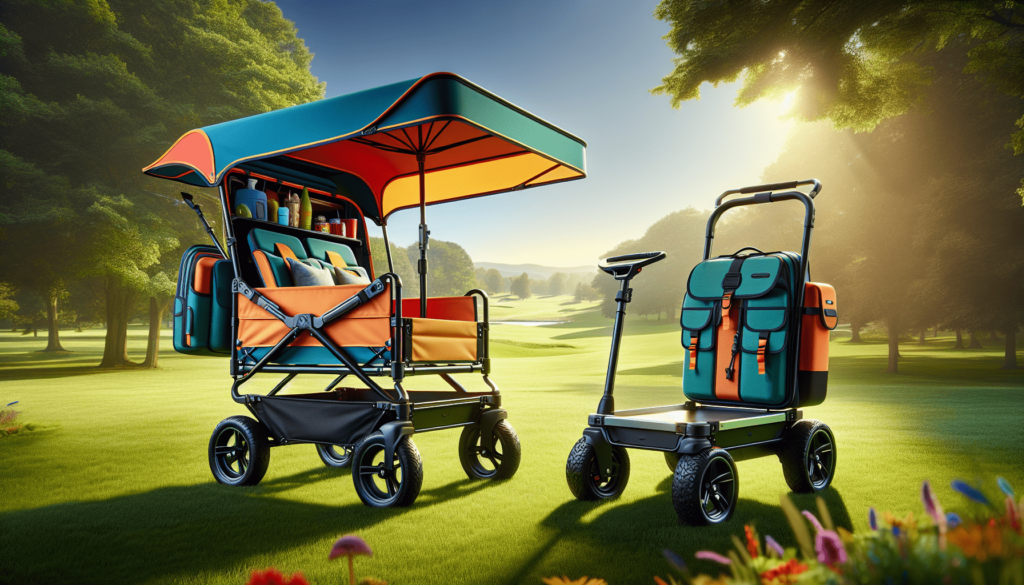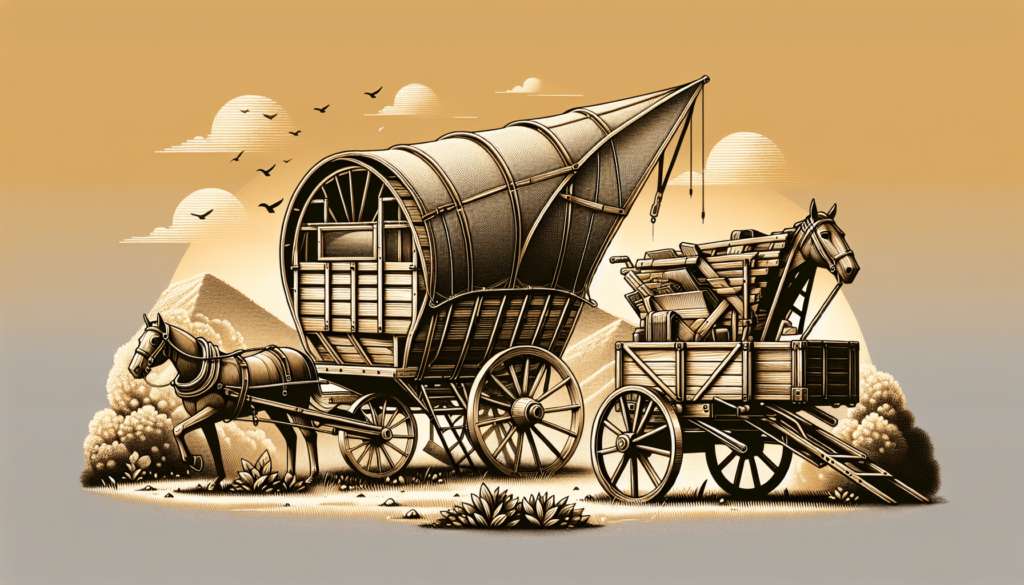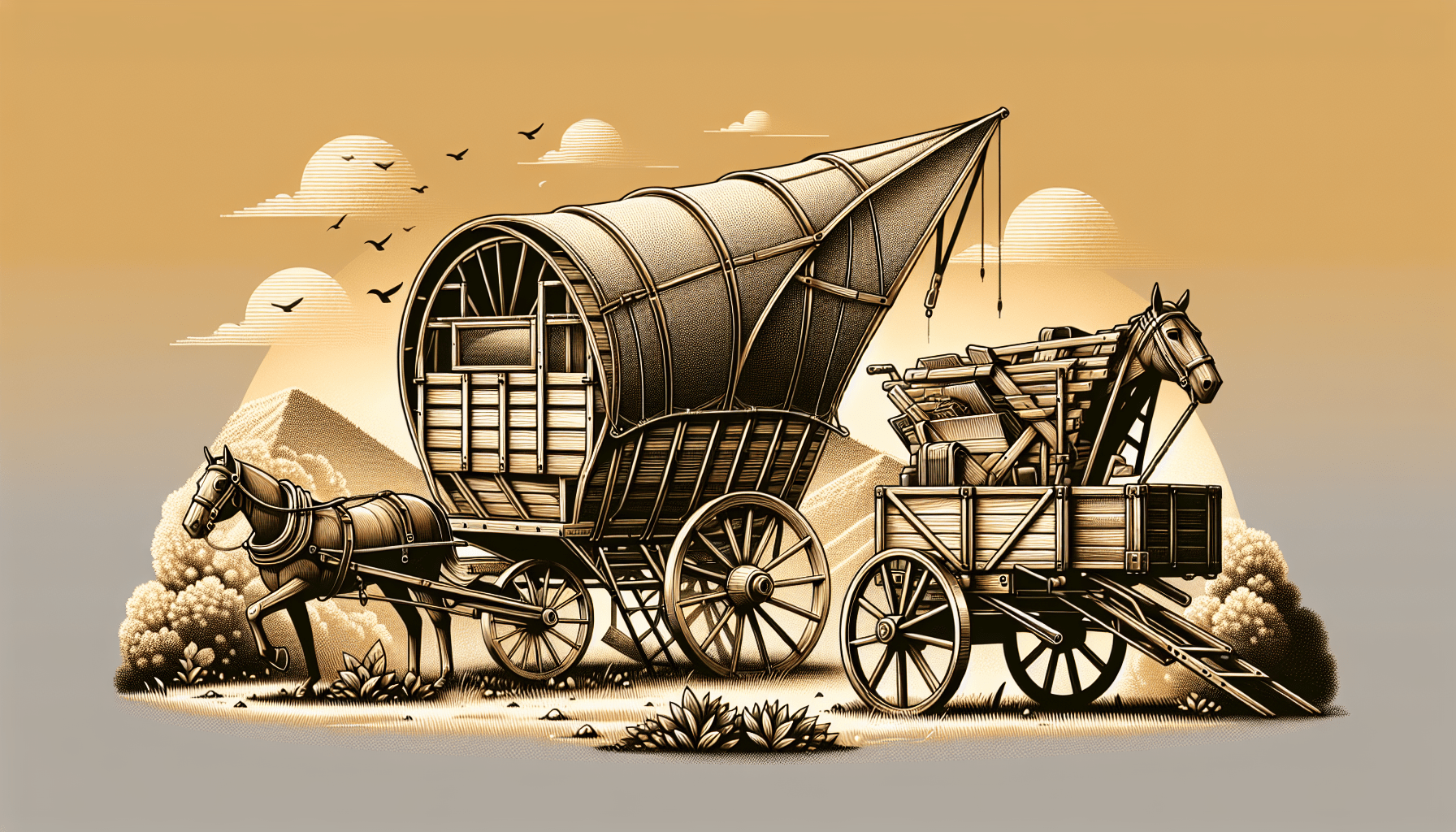Have you ever found yourself overwhelmed while choosing between a folding wagon and a utility cart? It can be a puzzling situation, especially when both seem to offer similar benefits. Fear not! In this guide, we’ll untangle the differences and help you understand which option might be the right fit for your needs.

Understanding Folding Wagons
A folding wagon is designed for convenience and versatility. These wagons typically have a collapsible framework that makes them easy to store and transport. They usually boast durable fabric sides and a sturdy base.
Key Features of Folding Wagons
-
Portability: One of the primary advantages of a folding wagon is how easily it folds up. You can stash it in your car’s trunk or a closet without a hassle, which makes it an attractive option for those who need a transient carrying solution.
-
Lightweight Construction: Generally, folding wagons are built from lighter materials compared to utility carts. This means you can carry them around without feeling weighed down.
-
Adjustable Handles: Many folding wagons come with an adjustable handle, allowing you to choose a comfortable height for pulling.
-
Versatile Usage: From beach outings to picnics at the park, using a folding wagon is a great way to transport your gear. They can hold everything from beach chairs to groceries.
-
Design Variability: Folding wagons come in various designs and colors, adding a touch of personal style to your outdoor adventures.
Pros and Cons of Folding Wagons
| Pros | Cons |
|---|---|
| Lightweight and portable | Typically lower weight capacity compared to utility carts |
| Easy to store | Can be less robust for heavy-duty tasks |
| Versatile for casual outings | May not have specific features for specialized tasks |
What About Utility Carts?
Utility carts are more focused on functionality and heavy-duty use. Often seen in industrial or gardening environments, these carts are sturdy and designed to handle larger, heavier loads.
Key Features of Utility Carts
-
Robust Construction: Made from heavy-duty materials, utility carts are built to last and often withstand rigorous use. They can support heavier loads than most folding wagons.
-
Multiple Levels: Many utility carts come with multiple shelves, allowing you to organize your items more effectively. This is beneficial for tasks requiring separation and differentiation.
-
Fixed Design: While utility carts don’t typically fold up as compactly as wagons, their durability makes them suitable for various challenging environments.
-
Versatility in Usage: These carts are not limited to one type of task. You can use them for gardening supplies, groceries, or even tools.
-
Wheels Designed for Rough Terrain: Utility carts often come equipped with sturdy wheels that can handle uneven surfaces, making them ideal for outdoor activities or construction sites.
Pros and Cons of Utility Carts
| Pros | Cons |
|---|---|
| Built for heavy-duty tasks | Generally bulkier and less portable |
| Multiple storage options | May not fit in smaller spaces |
| Excellent on rough terrain | Limited color/design options |
Use Cases: When to Choose One Over the Other
Understanding where each of these transport solutions shines can guide your choice.
Folding Wagon Use Cases
-
Family Outings: If you’re going to the park for a picnic, a folding wagon can easily carry food, blankets, and toys for the kids.
-
Beach Trips: Strolling along the shoreline can be daunting with all the gear you need. A folding wagon can hold beach chairs, umbrellas, and snacks without breaking a sweat.
-
Outdoor Events: Think of festivals or outdoor concerts, where portability and ease of use are essential.
Utility Cart Use Cases
-
Gardening and Landscaping: If you are planting a garden, a utility cart can carry soil bags, plants, and tools, saving you many trips back and forth.
-
Construction and Maintenance: When handling heavy materials or tools, the robust nature of a utility cart really shines.
-
Warehouse Use: For transporting goods in a warehouse setting, the sturdiness and multi-tiered shelves of a utility cart can streamline the process.

Cost Considerations
When choosing between a folding wagon and a utility cart, price can play a significant role.
Folding Wagon Pricing
When it comes to cost, folding wagons are often more budget-friendly. Prices typically range from $50 to $150, depending on the brand and features. Since these are generally used for light to moderate tasks, most of them fall into an affordable range.
Utility Cart Pricing
Utility carts can be more costly, often ranging from $100 to upwards of $300. Their durable construction and heavier load-bearing capabilities justify the higher price point. The investment might be worth it if you’re planning to use the cart for heavier duty tasks regularly.
Durability: Which is More Long-lasting?
When discussing durability, the materials used in construction matter immensely.
Folding Wagons
Folding wagons usually use lightweight materials which, while portable, may not withstand the test of time and rigorous use as effectively as utility carts. They can handle light tasks well, but if you’re using a wagon under demanding conditions, you might find it falling short after some time.
Utility Carts
On the flip side, utility carts are designed to endure more demanding scenarios. Made primarily from heavy-duty plastic or steel, these carts can take a beating and don’t easily succumb to wear and tear. If durability is your main concern, a utility cart would likely serve you better over the long term.
Weight Capacity: Why It Matters
Understanding the weight capacity of both options can help you make the right choice.
Folding Wagon Weight Limitations
Generally, a folding wagon can hold between 100 to 150 pounds. While this is sufficient for casual uses like transporting picnic supplies or beach gear, it might not be appropriate if you’re looking to carry heavier materials.
Utility Cart Weight Limitations
Conversely, utility carts can hold significantly more, often reaching up to 400 pounds or even more, depending on the model. If you have heavy items, relying on a utility cart is a sensible choice.
Storage Options
How and where you plan to store these transport solutions can affect your decision.
Storing a Folding Wagon
The compact design of a folding wagon means it can fit into small spaces. They usually collapse flat, which is excellent for people with limited storage options in their homes or vehicles.
Storing a Utility Cart
Utility carts tend to take up more space due to their fixed design. If you have room in your garage or workshop, that’s perfect. However, if you’re tight on space, the large dimensions of a utility cart might pose a problem.
Additional Considerations
Finally, let’s touch on some other aspects that might influence your choice.
Ease of Use
When considering ease of use, folding wagons often have a leg up. They are light and easy to maneuver, making them friendly for families or users of any age. Also, you can pull them without much effort.
On the other hand, utility carts can sometimes be cumbersome to navigate in tight spaces. The extra durability does come at the cost of portability in some cases.
Aesthetic Appeal
If appearances matter to you, folding wagons offer a variety of stylish designs and colors. You can pick one that matches your personality or the look of outdoor gatherings.
Utility carts, in contrast, have a more utilitarian design. While they tend to be functional, their aesthetic appeal may not win over those who care for trendy gear.
Accessories and Customization
You can often find additional accessories for both options. Some folding wagons allow for snack trays, canopies, or even cup holders for added comfort and convenience during outings.
Utility carts may offer tool holders or extra shelves designed for organization in craftsmanship scenarios.
The Verdict
Deciding between a folding wagon and a utility cart often boils down to your specific needs. If you are looking for a lightweight, portable solution for family outings or casual use, a folding wagon may be your best bet. Conversely, if you’re focused on heavy-duty tasks and durability, a utility cart would likely suit you better.
Both options have merits and drawbacks, so consider what will work best for your lifestyle. As you contemplate your decision, remember to factor in flexibility, storage space, and how you plan to use your wagon or cart.
Ultimately, whichever you choose, you’re enhancing your outdoor experiences and making life a little easier – and that sounds like a win-win!

